DeepLearning
Latest
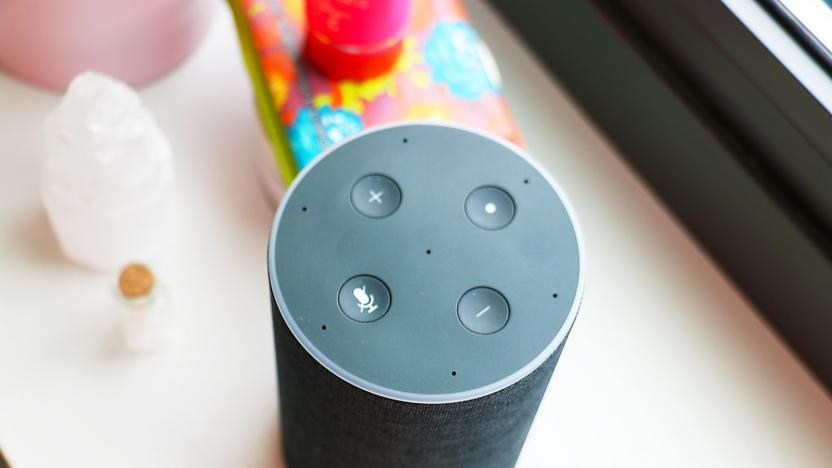
Alexa will soon have a memory
You'd be forgiven for thinking that Amazon's Alexa was an amnesiac: it can't remember important long-term info, or even that you started talking to it a few moments ago. Soon, though, it'll be considerably less forgetful. Amazon's Ruhi Sarikaya has detailed a string of upgrades to Alexa that promise more natural conversations, particularly about familiar subjects. Most notably, Alexa devices in the US will soon have a memory: you can tell the voice assistant to remember an important fact (say, a friend's birthday) and bring that up later.
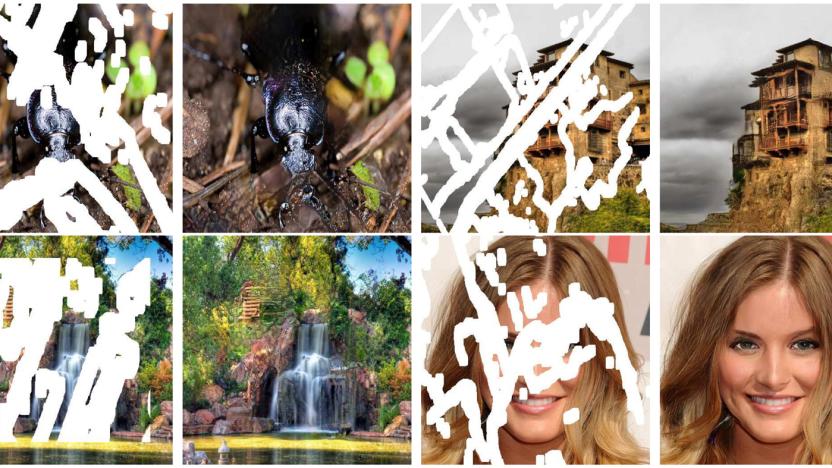
NVIDIA's AI fixes photos by recognizing what's missing
Most image editing tools aren't terribly bright when you ask them to fix a photo. They'll borrow content from adjacent pixels (such as Adobe's recently demonstrated context-aware AI fill), but they can't determine what should have been there -- and that's no good if you're trying to restore a decades-old photo where you know what's absent. NVIDIA might have a solution. It developed a deep learning system that restores photos by determining what should be present in blank or corrupted spaces. If there's a missing eye in a portrait, for instance, it knows to insert one even if the eye area is largely obscured.
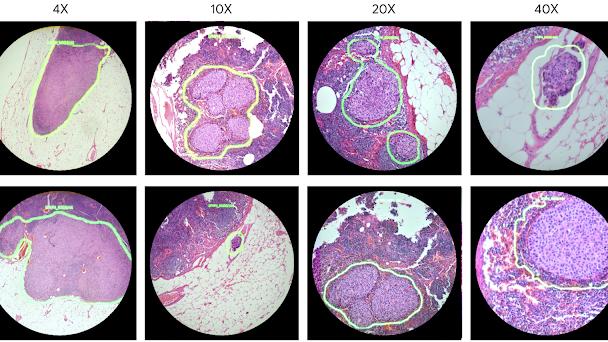
Google made an AR microscope that can help detect cancer
In a talk given today at the American Association for Cancer Research's annual meeting, Google researchers described a prototype of an augmented reality microscope that could be used to help physicians diagnose patients. When pathologists are analyzing biological tissue to see if there are signs of cancer -- and if so, how much and what kind -- the process can be quite time-consuming. And it's a practice that Google thinks could benefit from deep learning tools. But in many places, adopting AI technology isn't feasible. The company, however, believes this microscope could allow groups with limited funds, such as small labs and clinics, or developing countries to benefit from these tools in a simple, easy-to-use manner. Google says the scope could "possibly help accelerate and democratize the adoption of deep learning tools for pathologists around the world."
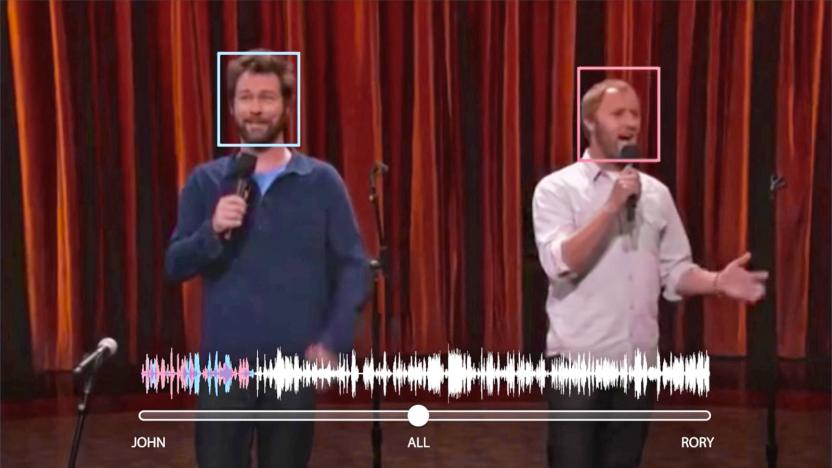
Google AI can pick out voices in a crowd
Humans are usually good at isolating a single voice in a crowd, but computers? Not so much -- just ask anyone trying to talk to a smart speaker at a house party. Google may have a surprisingly straightforward solution, however. Its researchers have developed a deep learning system that can pick out specific voices by looking at people's faces when they're speaking. The team trained its neural network model to recognize individual people speaking by themselves, and then created virtual "parties" (complete with background noise) to teach the AI how to isolate multiple voices into distinct audio tracks.
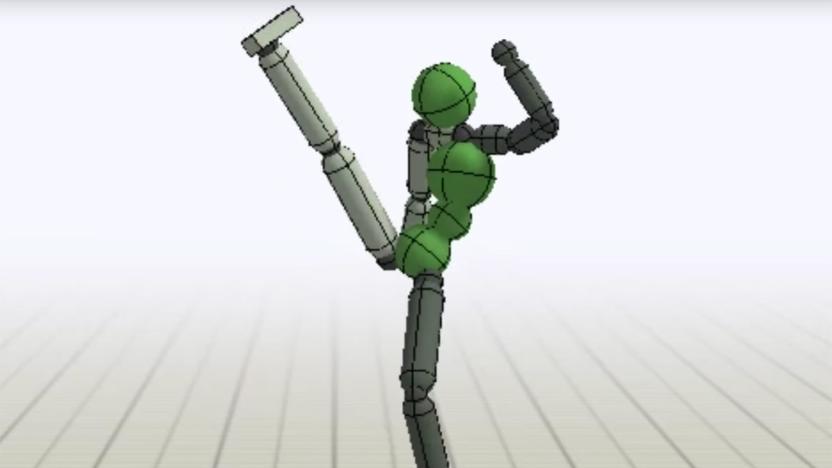
AI stuntpeople could lead to more realistic video games
Video game developers often turn to motion capture when they want realistic character animations. Mocap isn't very flexible, though, as it's hard to adapt a canned animation to different body shapes, unusual terrain or an interruption from another character. Researchers might have a better solution: teach the characters to fend for themselves. They've developed a deep learning engine (DeepMimic) that has characters learning to imitate reference mocap animations or even hand-animated keyframes, effectively training them to become virtual stunt actors. The AI promises realistic motion with the kind of flexibility that's difficult even with methods that blend scripted animations together.
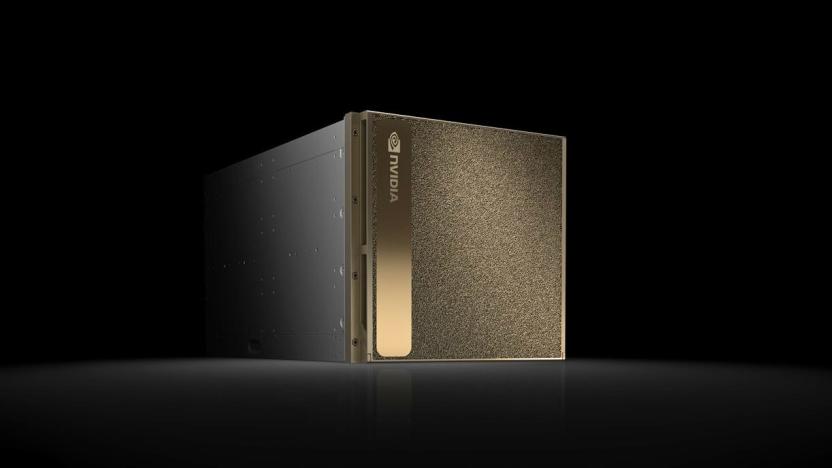
NVIDIA's next AI steps: An ARM deal and a new 'personal supercomputer'
Soon you won't need one of NVIDIA's tiny Jetson systems if you want to tap into its AI smarts for smaller devices. At its GPU Technology Conference (GTC) today, the company announced it'll be bringing its open source Deep Learning Architecture (NVDLA) over to ARM's upcoming Project Trillium platform, which is focused on mobile AI. Specifically, NVDLA will help developers by accelerating inferencing, the processing of using trained neural networks to perform specific tasks.
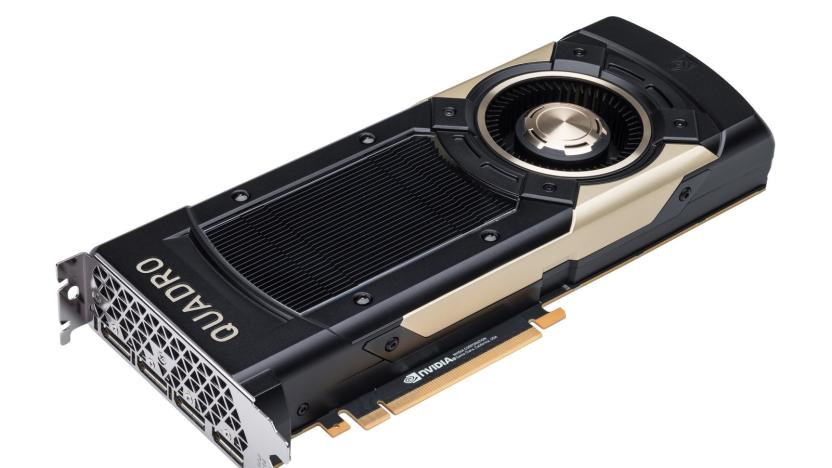
NVIDIA's Quadro GV100 GPU will power its ray tracing tech
Last week, NVIDIA unveiled its RTX real-time ray tracing technology at GDC. It has the potential to change the way artists and developers work in 3D, by letting them quickly render realistic scenes. The only downside? It was meant for video cards the company still hasn't launched yet. At its GPU Technology Conference (GTC), NVIDIA announced the first GPU that can power RTX, the Quadro GV100. Like the recent $3,000 Titan V, it's a powerhouse card built on the company's next-generation Volta architecture.
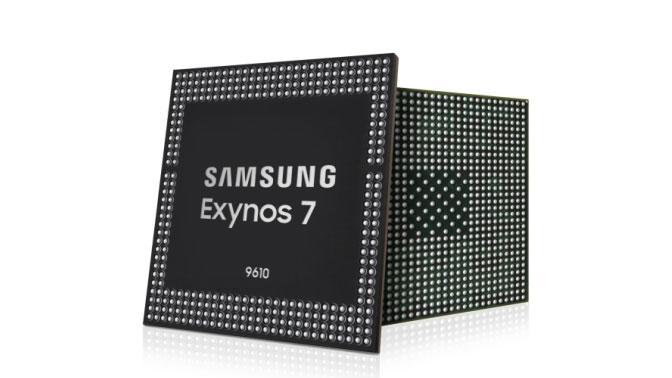
Samsung's new Exynos chip boosts photo-taking in mid-tier phones
Samsung's latest application processor (AP) is set to significantly improve photo-taking in mid-tier phones. The Eyxnos 7 9610 has boosted deep learning image properties, so it'll recognize faces in pictures even if they're not facing the camera, or if they're obstructed by hair or hats.
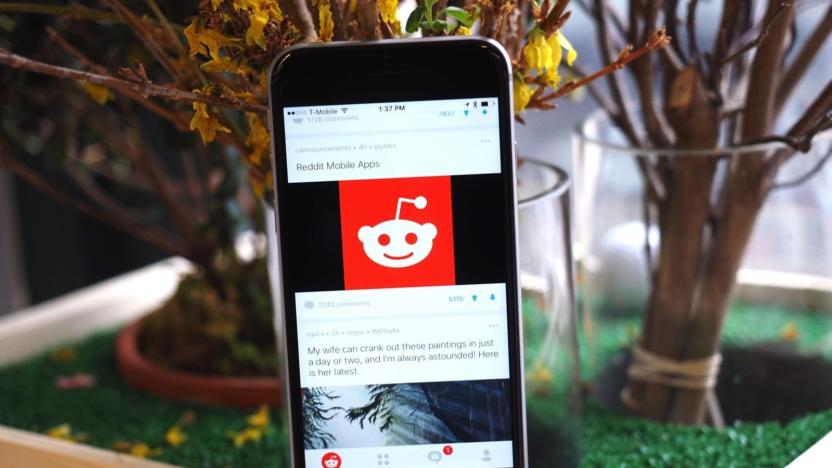
Most Reddit battles are started by 1 percent of communities
Are you convinced that just a handful of Reddit communities stir up the majority of trouble? You now have some data to back up your theory. Stanford researchers have released a study showing that just 1 percent of subreddits instigate 74 percent of all intercommunity conflicts on the site, including raids. The team analyzed 40 months' worth of Reddit comments and posts to look for negative links to other communities, and tracked the virtual brawls that followed. The paper doesn't name every group involved, but notes that the conflicts tend to be sparked between groups that are diametrically opposed to each other on controversial topics, such as conspiracy theorists and documentary fans.

Twitter bans 'deepfake' AI-generated porn
The fight against the spread of "deepfake" porn has another ally: Twitter. The social network has told Motherboard that it's banning accounts that are either the original posters of AI-edited videos or dedicated to posting these clips. These face swaps violate the company's "intimate media" policy, which bars any sexually explicit photos or videos produced or shared without someone's consent. It's on par with revenge porn, in that regard.

Pornhub says it will ban 'deepfake' AI-edited videos
Is the thought of AI-generated fake porn (aka "deepfakes") disturbing to you? You're not the only one. Pornhub has informed Motherboard that it will ban videos that use machine learning to superimpose faces on porn actors. The company forbids "any nonconsensual content," and this certainly qualifies -- more often than not, the face's owner didn't give permission. Pornhub put it on the same level as revenge porn.
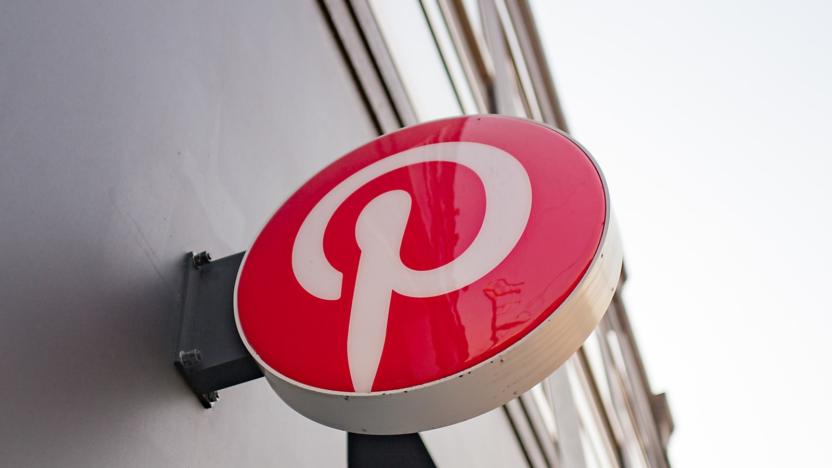
Pinterest hires Google computer vision expert to sort your Pins
Pinterest is very committed to improving its search technology through AI -- so committed, in fact, that it just hired one of the foremost experts in the field. The social network has announced that it's recruiting Chuck Rosenberg, Google's AI vision research leader, to become its Head of Computer Vision. He spent just shy of 14 years at Google and was responsible for a number of major AI-related efforts, including the first large deployment of an image-focused deep learning network.
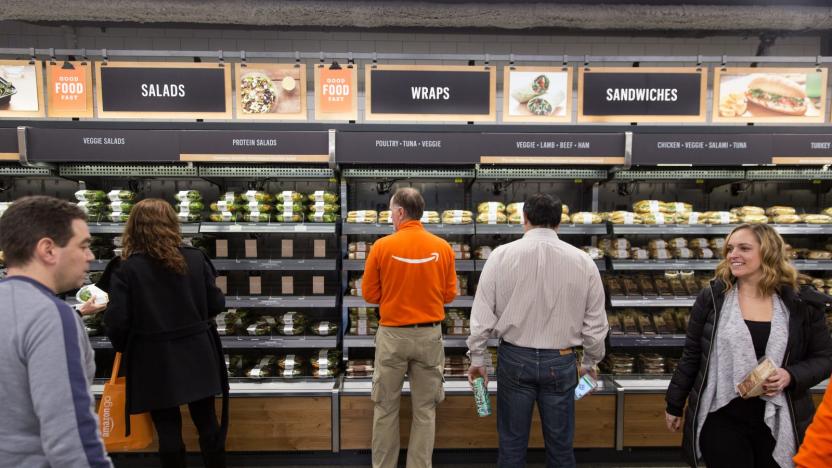
Amazon's checkout-free store opens to the public January 22nd
Amazon's bid to automate the convenience store is finally ready for the public. The company has confirmed that the Amazon Go store attached to its new Seattle headquarters will be open to non-employees on January 22nd, or more than a year later than planned. The premise remains the same. You have to scan in with a smartphone app when you enter the store, but it's largely friction-free beyond that. A computer vision AI system tracks the items you remove from the shelves, letting you walk out without talking to a cashier or using a self-checkout machine. The only staff you'll likely see are for ID checking (when buying alcohol), greeters and the kitchen.

Amazon's AI camera helps developers harness image recognition
Far from the stuff of science fiction, artificial intelligence is becoming just another tool for developers to build the next big thing. It's built in to Photoshop to help you knock out backgrounds, Google is using AI to figure out if you have a person peeping on your phone and Microsoft uses the technology to teach you Chinese. As Amazon's Jeff Barr says, "I think it is safe to say, with the number of practical applications for machine learning, including computer vision and deep learning, that we've turned the corner" towards practical applications for AI. To that end, Amazon has announced AWS DeepLens, a new video camera that runs deep learning models right on the device.
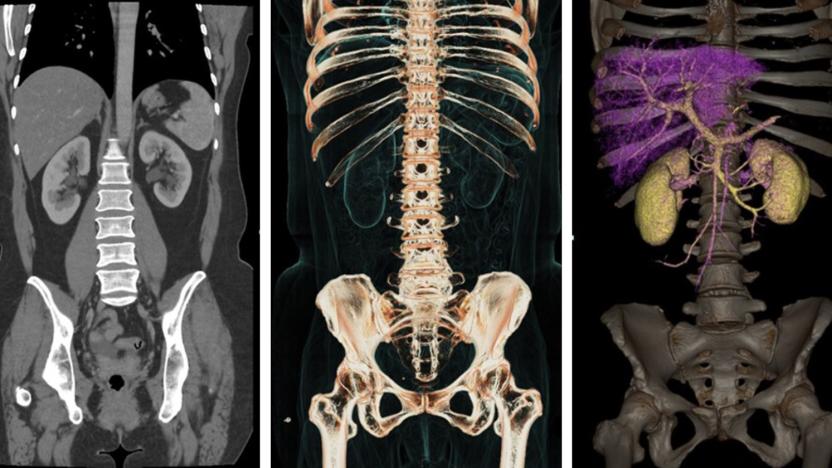
NVIDIA's AI will help GE speed up medical image processing
Deep learning tech is making itself at home in hospitals by helping radiologists examine medical scans for just a buck per image. Now, GE Healthcare is bringing that AI tech directly to the scanners, thanks to partnerships with NVIDIA and Intel. It announced that it will update 500,000 of its medical devices around the world with NVIDIA AI tech, most notably its Revolution Frontier CT scanner (below). The tech "is expected to deliver better clinical outcomes in liver lesion detection and kidney lesion characterization because of its speed," GE wrote in a press release.
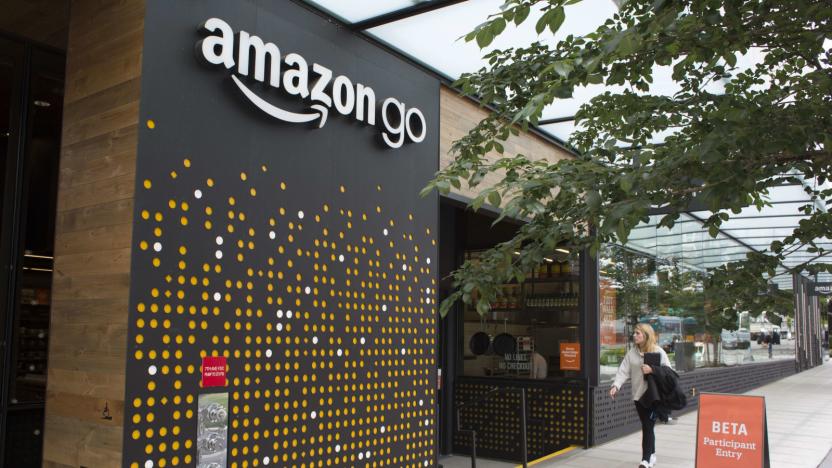
Amazon's automated convenience stores edge closer to public debut
Last year, Amazon opened its first convenience store embedded with its "just walk out technology." Located in Seattle, the Amazon Go store, which lets shoppers walk in, load up on the items they want and walk out without having to pay for the items in a checkout line, has been testing its technology with Amazon employees. Now, as Bloomberg reports, the company has worked through some of the hangups with the technology and is making moves towards opening its store and others to the public.
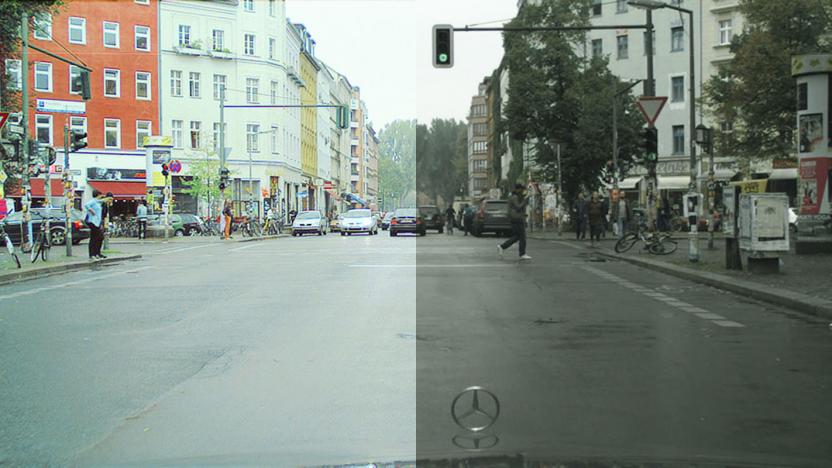
Neural network gives your phone 'DSLR-quality' photos
You can buy a Pixel phone if you want AI to enhance your photos every time you press the shutter button, and services like Google Photos use AI for minor fixes and clever effects. But what if you wish your photos looked like they were taken with a much better camera? Scientists might have an answer. They've developed a neural network system that's focused solely on giving your photos a "DSLR-quality" look. It's not flawless, but its novel approach points to a future where your phone knows what photos should look like and tweaks shots to match.
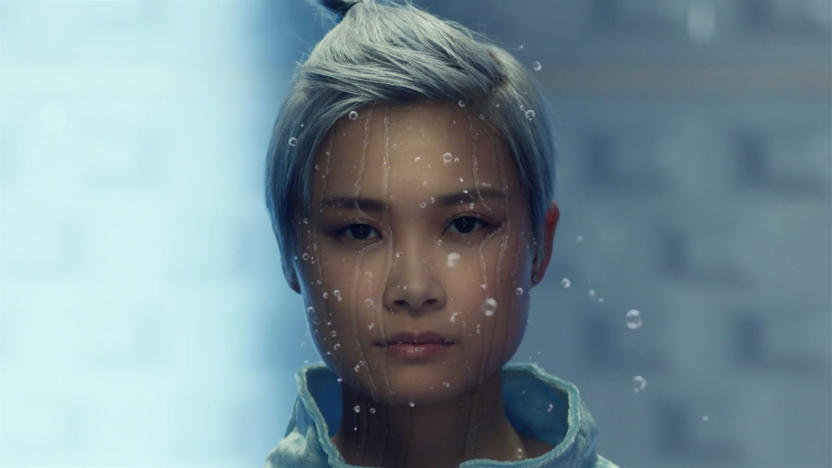
Intel AI helped create a music video
AI is increasingly finding its way into music videos, and not necessarily in obvious ways. Intel has revealed that the promo clip for Chinese pop star Chris Lee's "Rainy Day, But We Are Together" is the first music video to lean on its AI technology. Director Timothy Saccenti and Intel's producers created dramatic special effects on the songstress' face (such as trickles of water and twinkling stars) by training a machine learning system to instantly reconstruct a face in 3D and track its movements in real time, including facial expressions. Instead of asking Lee (aka Li Yuchun) to wear tracking markers or the camera crew to shoot a specific way, the creative team could focus on capturing scenes that lined up with their artistic goals.
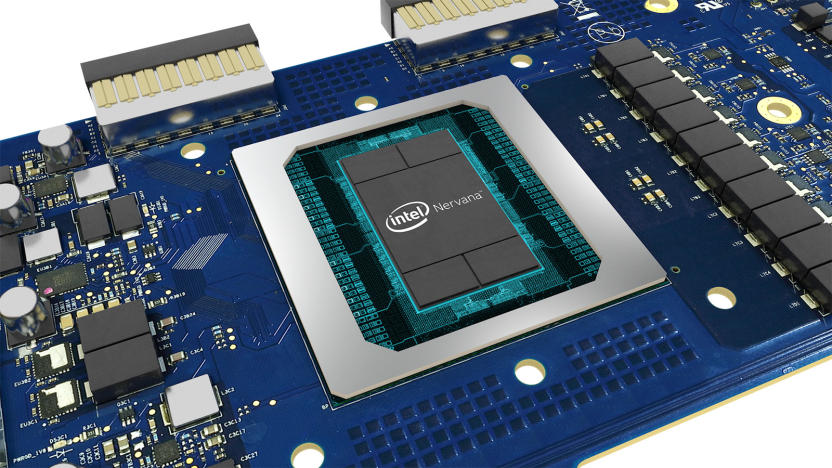
Intel aims to conquer AI with the Nervana processor
Intel makes some pretty fast chips, but none are very efficient at the hottest thing in computing right now: Artificial intelligence (AI). Deep-learning apps that do computer vision, voice recognition and other tasks mostly just need to run matrix calculations on gigantic arrays -- something that doesn't suit general-purpose Core or Xeon chips. Now, thanks to its purchase of deep learning chipmaker Nervana, Intel will ship its first purpose-built AI chips, the Nervana Neural Processor family (NNP), by the end of 2017.

Samsung is the latest tech titan to open an AI lab in Canada
If it wasn't already clear that Canada is becoming a hotbed for AI research, it is now: Samsung has opened an AI lab (shown below) at the Université de Montréal. The school's faculty and students (including long-time Samsung partner Prof. Yoshua Bengio) will collaborate with South Korean researchers on a slew of AI-related projects, including self-driving car technology, image recognition, translation and robots. While you may not see the first fruits of this lab for years, it underscores both Samsung's increasing dependence on AI and the tech industry's rapid shift to the north.





